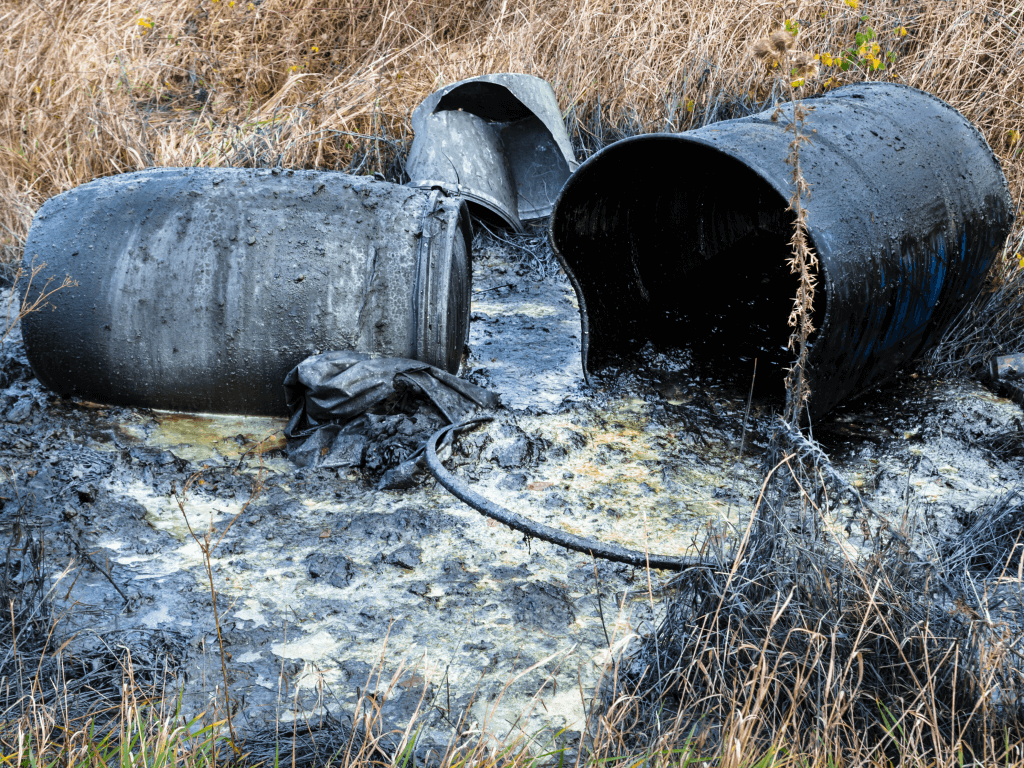EN 16192 Characterization of Hazardous Waste Leachates Test
The EN 16192 standard provides a comprehensive framework for characterizing the leachate from hazardous waste. This testing procedure is crucial in ensuring environmental compliance and safety standards are met during waste management practices.
Hazardous wastes, by their very nature, pose significant risks to human health and ecosystems if not handled properly. Leaching of these materials can result in dangerous pollutants entering the environment. Therefore, understanding the composition and potential impact of leachates is essential for effective risk assessment and mitigation strategies.
The EN 16192 test method involves subjecting a defined quantity of hazardous waste to controlled conditions that simulate real-world scenarios where leaching might occur. The aim is to assess the concentration levels of various contaminants present in the resulting leachate, which can then be used to inform appropriate disposal methods and treatment processes.
The testing protocol outlined by EN 16192 ensures consistency across different laboratories conducting similar tests, thereby enhancing reliability and comparability. This standard specifies not only the procedures but also the acceptance criteria necessary for determining whether a waste sample meets regulatory requirements regarding its hazardous characteristics.
Compliance with this standard is particularly important in industries dealing directly or indirectly with industrial by-products, pharmaceuticals, electronics manufacturing, oil refining, and other sectors where hazardous materials are commonly generated. By adhering to EN 16192 guidelines, these organizations can ensure they comply with relevant national and international regulations concerning the management of such wastes.
Understanding the intricacies involved in preparing samples for this type of testing is equally critical as performing accurate analyses. Proper sample preparation ensures that any detected contaminants reflect true conditions rather than artifacts introduced during handling. This includes thorough mixing of the waste material, ensuring representative sampling, and controlling temperature and pH levels throughout the process.
Once prepared, the samples are subjected to a series of tests designed to identify specific types of pollutants found in leachates from hazardous wastes. These might include heavy metals like lead (Pb), cadmium (Cd), mercury (Hg); volatile organic compounds; or persistent organic pollutants depending on the nature of the waste being tested.
Instrumentation plays a vital role in accurately measuring these parameters. High-precision analytical equipment such as Inductively Coupled Plasma Mass Spectrometry (ICP-MS) for metal analysis, gas chromatography-mass spectrometry (GC-MS) for organic compounds, and Fourier Transform Infrared Spectroscopy (FTIR) are typically employed.
The results of these tests are compiled into detailed reports that provide a comprehensive overview of the leachate's composition. These reports serve multiple purposes including guiding waste management practices; supporting decisions made during environmental impact assessments; providing data useful for developing cleaner production technologies; and fulfilling legal obligations imposed by various jurisdictions.
In conclusion, implementing the EN 16192 standard helps organizations manage hazardous waste more responsibly while safeguarding public health and protecting natural environments. It offers a robust approach to characterizing leachates from these materials, enabling informed decision-making processes that prioritize both efficiency and sustainability in waste management strategies.
Eurolab Advantages
At Eurolab, we bring unparalleled expertise and advanced facilities to your hazardous waste characterization needs. Our state-of-the-art laboratories are equipped with cutting-edge technology, ensuring precise measurements and reliable results that meet the highest international standards.
We employ highly trained professionals who possess deep knowledge in environmental science and regulatory compliance. Their extensive experience allows us to provide accurate interpretations of test outcomes, helping you make informed decisions about waste management practices.
Our commitment to quality extends beyond just technical proficiency; we also ensure that all our operations comply with relevant national and international regulations. This guarantees consistency and traceability in every aspect of the testing process, from sample preparation through final reporting.
In addition to standardizing methodologies, Eurolab offers customized solutions tailored specifically to your unique requirements. Whether you need assistance designing a specific test protocol or require ongoing support for routine analyses, our team is here to assist.
We pride ourselves on delivering quick turnaround times without compromising on accuracy or precision. Timely delivery of results helps minimize disruptions in your workflow and ensures timely implementation of necessary actions based on the findings from these tests.
Our dedication to sustainability doesn't end at providing top-notch testing services; it continues through our efforts towards reducing waste generation within our own operations. By practicing what we preach, Eurolab sets an example for responsible environmental stewardship across all facets of our business activities.
Quality and Reliability Assurance
At Eurolab, ensuring the highest standards of quality and reliability is non-negotiable. We have implemented rigorous quality management systems that are ISO 9001:2015 certified to guarantee consistency in our services.
Our comprehensive approach includes strict adherence to international standards such as EN 16192 when conducting hazardous waste leachate tests. This ensures that every step of the testing process—from sample preparation through analysis and reporting—is conducted with precision and care.
We invest heavily in maintaining our equipment, ensuring all instruments used are regularly calibrated against certified reference materials. Regular internal audits and external certifications further reinforce our commitment to excellence.
Customer satisfaction is paramount for us; therefore, we provide transparent communication throughout the testing process. Our dedicated customer service team offers support at every stage, from initial consultation right through final report delivery.
International Acceptance and Recognition
The EN 16192 standard has gained widespread acceptance internationally due to its robustness and scientific rigor. It is widely recognized across Europe, North America, Asia-Pacific regions among others.
This recognition stems from the comprehensive nature of this standard which covers all aspects related to characterizing hazardous waste leachates. Its global adoption reflects growing awareness about the importance of accurate characterization in managing hazardous wastes responsibly.
Organizations worldwide rely on EN 16192-compliant laboratories for their testing needs because they know that these labs adhere strictly to internationally accepted protocols and practices. This fosters trust between clients and service providers, promoting consistency across borders.





